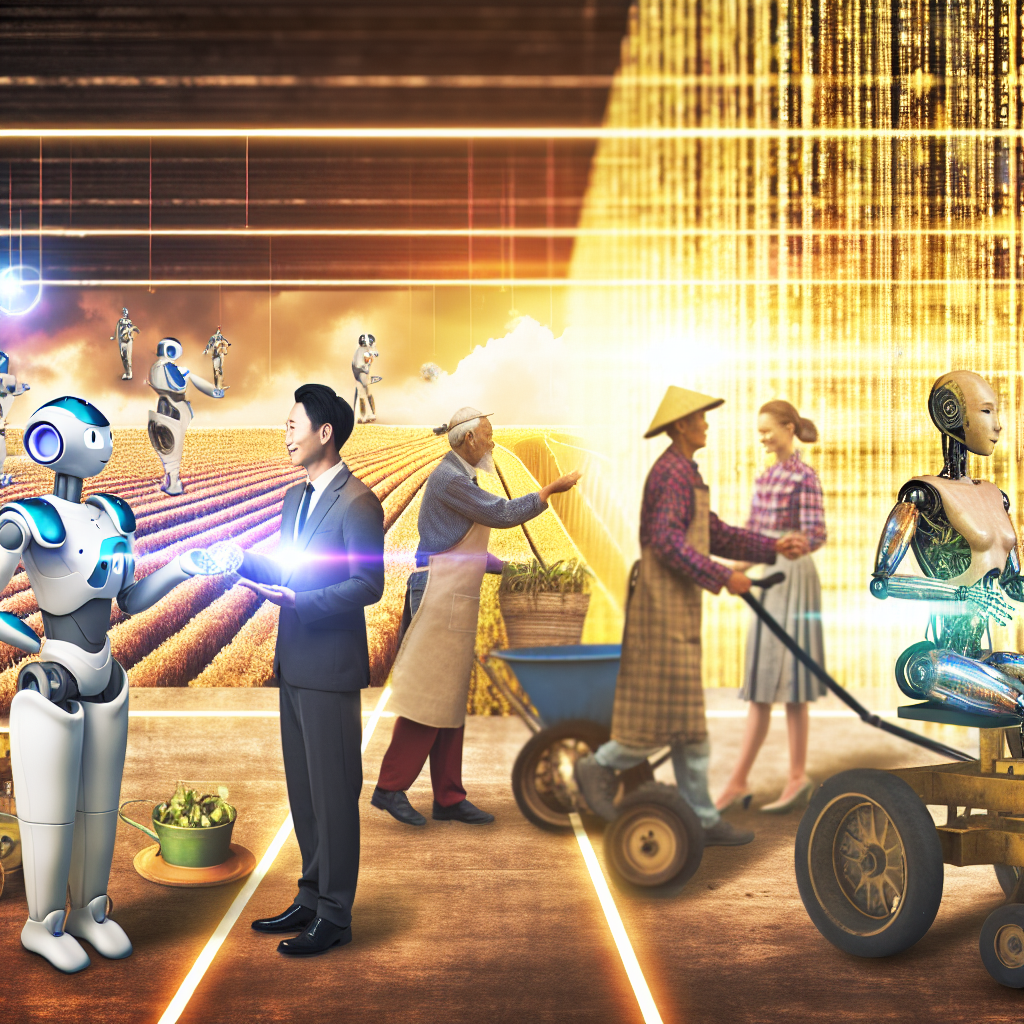
“`html
How Artificial Intelligence Is Shaping the Future of Industries
The advent of Artificial Intelligence (AI) has taken the world by storm. While many might dismiss it as just another tech buzzword, the reality tells a different story. AI has moved beyond theoretical discussions to deliver real, tangible impact across industries. From healthcare to manufacturing, retail to entertainment, AI is actively transforming industries in ways never imagined before.
What Does Artificial Intelligence Mean for Industries?
At its core, Artificial Intelligence is about enabling machines to mimic human capabilities like learning, problem-solving, and decision-making. But the implications for industries go much deeper than that:
- Automation: AI automates repetitive tasks, freeing up human resources for more strategic initiatives.
- Insights from Big Data: AI helps businesses analyze massive amounts of data quickly and accurately.
- Personalization: Companies use AI to create tailored experiences for their customers.
- Innovative Product Development: AI enables the creation of smarter, more innovative products and solutions.
When businesses leverage AI thoughtfully, it becomes more than just a buzzword—it becomes a tool for a competitive edge.
Industries Transformed by Artificial Intelligence
Let’s dive deeper into the key industries being revolutionized by AI:
1. Healthcare
The transformation in healthcare is nothing short of revolutionary. From enabling precision medicine to enhancing diagnostics, Artificial Intelligence is paving the way for a better future:
- Medical Imaging: AI-powered tools help physicians analyze scans faster and with greater accuracy.
- Drug Discovery: AI expedites the drug development process, saving both time and costs.
- Telemedicine: AI chatbots and diagnostic tools are empowering doctors to provide consultations even remotely.
Learn more about how technology is impacting healthcare on AIDigestFuture.
2. Retail
The retail industry is undergoing a paradigm shift, thanks to AI:
- Customer Insights: AI helps retailers analyze consumer behavior for personalized recommendations.
- Inventory Management: Automated solutions prevent overstocking or understocking goods.
- Chatbots: Providing 24/7 customer support has become seamless with AI chatbots.
3. Manufacturing
In the context of Industry 4.0, AI plays a leading role:
- Predictive Maintenance: AI predicts when machinery will require repairs, avoiding costly downtime.
- Supply Chain Optimization: AI ensures the efficient movement of goods across global supply chains.
- Quality Control: Machine vision with AI ensures zero defects in production.
Find specific examples of manufacturing advancements at AIDigestFuture.
4. Financial Services
Artificial Intelligence is proving invaluable to the financial sector by delivering both innovation and security:
- Fraud Detection: Machine learning algorithms identify unusual activity instantly.
- Robo-Advisors: AI-powered platforms provide personalized financial advice.
- Risk Assessment: AI accelerates the risk assessment process for loans and insurance.
Why AI Is No Longer Just a Buzzword
Here’s why AI has evolved from being a trendy phrase to become essential in modern industries:
- Proven ROI: Companies implementing AI solutions report higher profits and efficiency.
- Widespread Adoption: From startups to Fortune 500 firms, AI is being deployed by businesses of all sizes.
- Accessibility: Tools like natural language processing (NLP) and computer vision are now more accessible than ever.
How to Prepare Your Industry for AI Transformation
If you’re planning to embrace Artificial Intelligence, here’s a roadmap:
- Identify Use Cases: Determine where AI can bring the most value in your business operations.
- Invest in AI Talent: Build a team of skilled AI specialists or collaborate with vendors.
- Pilot Projects: Start small with pilot projects to understand AI applications and challenges.
- Upgrade Infrastructure: Ensure your IT infrastructure can support AI tools and massive data loads.
- Measure Impact: Continuously track the benefits and ROI from AI implementations.
Read our guide on implementing AI for businesses.
Challenges in AI Adoption
Despite the advancements, there are several hurdles that industries face when it comes to adopting Artificial Intelligence:
- Data Privacy Concerns: AI systems require vast amounts of data, which opens up concerns about privacy and security.
- High Cost of Implementation: Developing and deploying AI-powered solutions can be expensive.
- Lack of Skilled Workforce: There is a global shortage of skilled AI developers and data scientists.
- Ethical Issues: Industries must ensure their use of AI is fair and unbiased.
Future of AI Across Industries
The future looks incredibly promising for Artificial Intelligence. With continuous advancements and the democratization of AI tools, its adoption across industries is bound to accelerate. We anticipate innovations such as:
- Hyper-Personalized Customer Experiences
- Smarter Cities powered by AI and IoT
- Enhanced Collaboration between Humans and Machines
Conclusion
Artificial Intelligence is not just a shiny new tech trend; it is a transformational force that’s reshaping industries. Companies that understand and embrace AI will not only lead their markets today but also prepare themselves for a sustainable future. The question is not whether to adopt AI—it’s how fast you can.
Stay informed about the latest in AI advancements by visiting AIDigestFuture.
External References:
- How AI is Driving Industry Innovation – Forbes
- The Role of AI in Supply Chain Management – Harvard Business Review
- AI Transforming Healthcare – World Economic Forum
- AI at Scale: The Next Frontier – McKinsey
- Future AI Trends – Gartner
- New AI Developments – Statista
- What is Artificial Intelligence? – IBM
- AI Industry Trends 2023 – TechCrunch
- AI Impacts on Industrial Growth – Reuters
- AI Revolution Insights – Accenture
“`
